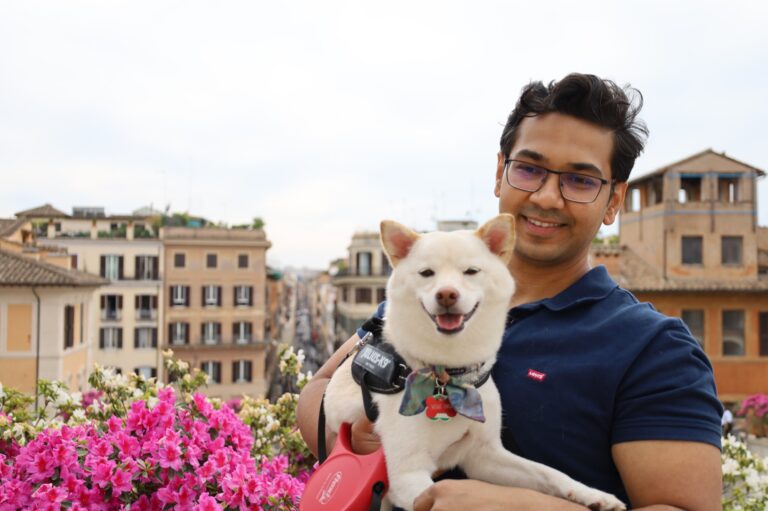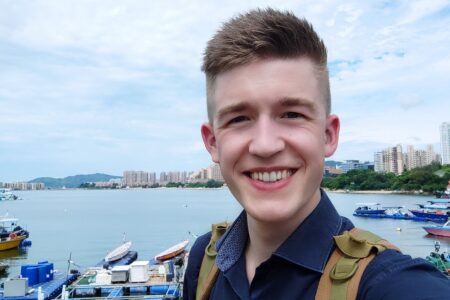
In March 2024, Taiwan’s Labour Minister Hsu Ming-chun said during a Yahoo TV interview that the country was planning on recruiting workers from India’s northeastern states because “their skin colour and eating habits” are similar to the Taiwanese and Indians are “mostly Christians” who are adept at manufacturing, construction, and farming.
The statement was met with criticism from political parties and Indian news outlets.
Hsu issued an apology later, and expressed Taiwan respects India’s diverse and rich culture.
Chen Kuan-Ting, a member of the Democratic Progressive Party, condemned the situation on X, saying, “Taiwan values everyone, irrespective of their race, culture, or religion.”
In response to recent statements from the Minister of Labor, I wish to express my strong condemnation.
As a member of Parliament, I want to reaffirm that Taiwan values everyone , irrespective of their race, culture, or religion. It is my firm belief that individuals from all… pic.twitter.com/rgQDS0A3uM
— 陳冠廷 Kuan-Ting Chen (@kuantingvision) March 5, 2024
A Reddit user comments, “Being black myself, I’ll say this: Taiwan is one of the least racist places I’ve personally been to (nearly thirty countries). Most of what you’ll see in Taiwan isn’t racism; rather, it’s ignorance. MOST is ignorance.”
Indian national Sourav De would know a thing or two about it.
How to earn a professorship in electrical engineering without a master’s degree
Born and raised in Kolkata, India, De has been based in Taiwan as an assistant professor of electrical engineering at the National Tsing Hua University, one of Taiwan’s top three universities, since 2017.
Growing up in a household of electrical engineers and civil servants, this career path is not too strange for De, but he thinks otherwise.
No particular event made him want to pursue electrical engineering specifically.
In fact, De says that he “was never good at studying” and instead enjoyed football and swimming a lot, even winning medals in competitions.
But when the time came to decide whether to take his love for sports seriously and pursue a career out of it or choose an academic path, De chose the latter.
After all, choosing sports as a career meant he had to be physically fit, and practising every day would require a lot of discipline. Academia, on the other hand, was significantly less labour-intensive.
And while De was looking into two different branches of engineering – mechanical or electrical – he chose electrical as that was the only programme offered by the university he was attending.
Luckily for De, he liked the programme enough to even pursue a master’s degree in it at the Indian Institute of Technology, though he ended up not completing it as a better opportunity was presented to him, and that was moving to Taiwan to teach while pursuing a PhD.
“In India, those who pursue electrical engineering would typically enter the workforce after graduation,” says De. “Doing research and becoming a professor isn’t a common career path.”
So De took this chance, working towards a professorship and PhD at the Institute of Microelectronics, Department of Electrical Engineering of the National Cheng Kung University in Taiwan.

In 2017, Sourav De travelled to Taiwan and worked on his PhD at National Cheng Kung University. Source: AFP
Adapting to a new society that’s still in the process of accepting foreigners
De’s move to Taiwan had its ups and downs, mostly because he was among the few Indian professors and PhD students.
“It was difficult making a life for myself in Taiwan as there were not many Indian foreigners at the time,” he says. “If you were to look at the US, there are many people from different backgrounds at different societal levels. So when you come to a country with few immigrants, there will be many things for you to adapt to.”
It took time to figure out how a foreigner would fit into Taiwanese society.
“I believe that we have to make our way in society. Yeah, it was not easy getting used to the culture here, but now it’s getting easier as its educational system is slowly opening up to foreigners. Now if you see in Taiwan, there’s an increased number of foreign professionals.”
De’s right — that number has increased from around 43,074 in 2020 to 69,509 in 2023, of which 13,339 were “foreign specialist professionals,” according to the European Chamber of Commerce Taiwan,
“Taiwan is very friendly towards foreigners,” said De. “I still remember the strangers who drove me to the supermarkets because I didn’t know where it was.”
De’s take on this welcoming attitude he received was not to downplay any racism but to understand that there is a fine line between ignorance and purposefully acting on it.
“Racism comes in different forms,” he says. “However, we will need to differentiate racism from curiosity or ignorance. If people want to discriminate against you, they will discriminate against you.”
And having lived in the country for nearly 10 years, De doesn’t regret making the move one bit.

De graduated from the Institute of Microelectronics at the National Cheng Kung University in Taiwan. Source: Sourav De
Joys and successes that made moving to Taiwan worthwhile
Perhaps one of the biggest challenges De faced while he’s been in Taiwan was finding a research topic for his PhD.
“My supervisor sent me an email with a list of topics for my PhD. I started exploring the topics in electrical engineering to see which I would enjoy the most. I initially started with different electric memory research, but it was a vast topic which became a problem,” De shares.
When it comes to research, it is always best for professionals to focus on a particular topic as it allows them to focus on it in depth. A specific focus will also make it easier for readers to follow and comprehend the research.
“Thinking that I could focus on multiple aspects of electrical engineering, my supervisor and post-supervisor brought me back down to earth and advised me to focus on one itself. That I can always diversify in the later future after making a name for myself.”
Today, De has published over 54 research papers in nanotechnology, semiconductor science and technology, electron devices, and more.
Twenty papers are on Google Scholarly, with over 727 citations since 2019.

Mimi is De’s white Shiba Inu, a dog he met while grocery shopping with his friend (now wife) in Taiwan. Source: Sourav De
The research papers are not De’s only joys and successes in Taiwan — Mimi, De’s white Shiba Inu, is his pride and joy.
It all began when De was getting his grocery shopping done with a friend, who eventually became his wife.
“There was a pet shop nearby, and I asked [my wife] if she wanted to look at dogs, but she feared them. So I went in and saw multiple dogs running around,” De says.
De would then ask the shop assistants if they had a white-coloured Shiba Inu, and to his luck, they did.
“We had no plans of getting a dog, but when we saw Mimi, she was calm,” he says. “We got home and had a few conversations about Mimi, and I made the decision to bring her home.”
However, taking care of a puppy wasn’t easy, and De quickly second-guessed his decision. But De and his wife weren’t going to give up so easily.
“We said to ourselves, ‘No, once we have made a decision, we will have to stick with it and keep it,” he says.
Now, Mimi is proving why a dog is a man’s best friend. De and Mimi have travelled the world together, including to countries like Germany, France, Italy, Australia, and many more.
De even turned down an offer from an accredited travel agency, Hopper, to continue his work in research and spend more time with Mimi and his wife in Taiwan together.










